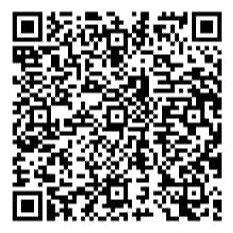Think of developmental psychology, and the name of Jean Piaget immediately springs to mind. His theory of learning lies at the very heart of the modern understanding of the human learning process, and he is celebrated as the founding father of child psychology. A prolific writer, he is the author of more
than fifty books and several hundred articles. The Psychology of Intelligence is one of his most important works. Containing a complete synthesis of his thoughts on the mechanisms of intellectual development, it is an extraordinary volume by an extraordinary writer. Given his significance, it is hardly
surprising that Psychology Today pronounced Piaget the best
psychologist of the twentieth century.A book on the “Psychology of Intelligence” could cover half the realm of psychology. The following pages are confined to outlining one view, that based on the formation of operations,” and to determining as objectively as possible its place among others which have been put forward. The first task is to define intelligence in relation to adaptive processes in general (Chap. 1), then to show, by examining the “psychology of thought”, that the act of intelligence consists essentially in “grouping” operations according to certain definite structures (Chap. 2). Then, if intelligence is thus conceived as the form of equilibrium towards which all cognitive processes tend, there arises the problem of its relations with perception (Chap. 3), and with habit (Chap.4); as well as the question of its development (Chap. 5) and of its socialization (Chap. 6).In spite of the abundance and the value of well-known studies, the psychological theory of intellectual mechanisms is only in its infancy, and we are barely beginning to glimpse the sort of precision of which it might be capable. Every psychological explanation comes sooner or later to lean either on biology or on logic (or on sociology, but this in turn leads to the same alternatives). For some writers mental phenomena become intelligible only when related to the organism.This view is of course inescapable when we study the elementary functions (perception, motor functions, etc.) in which intelligence originates. But we can hardly see neurology explaining why 2 and 2 make 4, or why the laws of deduction are forced on the mind of necessity. Thus arises the second tendency, which consists in regarding logical and mathematical relations as irreducible, and in making an analysis of the higher intellectual functions depend on an analysis of them. But it is questionable whether logic, regarded as something eluding the attempts of experimental psychology to explain it, can in its turn legitimately explain anything in psychological experience.
The Psychology of Intelligence -Jean Piaget Translated by Malcolm Piercy and D.E. Berlyne
Click on the button below to contact us on WhatsApp, and buy.
HOW TO PAY
You can pay send your payment at any of the following UPI IDs, or scan the QR code, or send the payment directly to our bank:
INDIA POST PAYMENTS BANK

(IPPB) UPI ID= 9563646472@postbank
Malay De Sarkar
A/C No: 100005759940
IFSC: IPOS0000001
Mobile: 9563646472
STATE BANK OF INDIA

(SBI) UPI ID= 9563646472@sbi
Malay De Sarkar
A/C No: 32004843406
IFSC: SBIN0000162
Mobile: 9563646472


